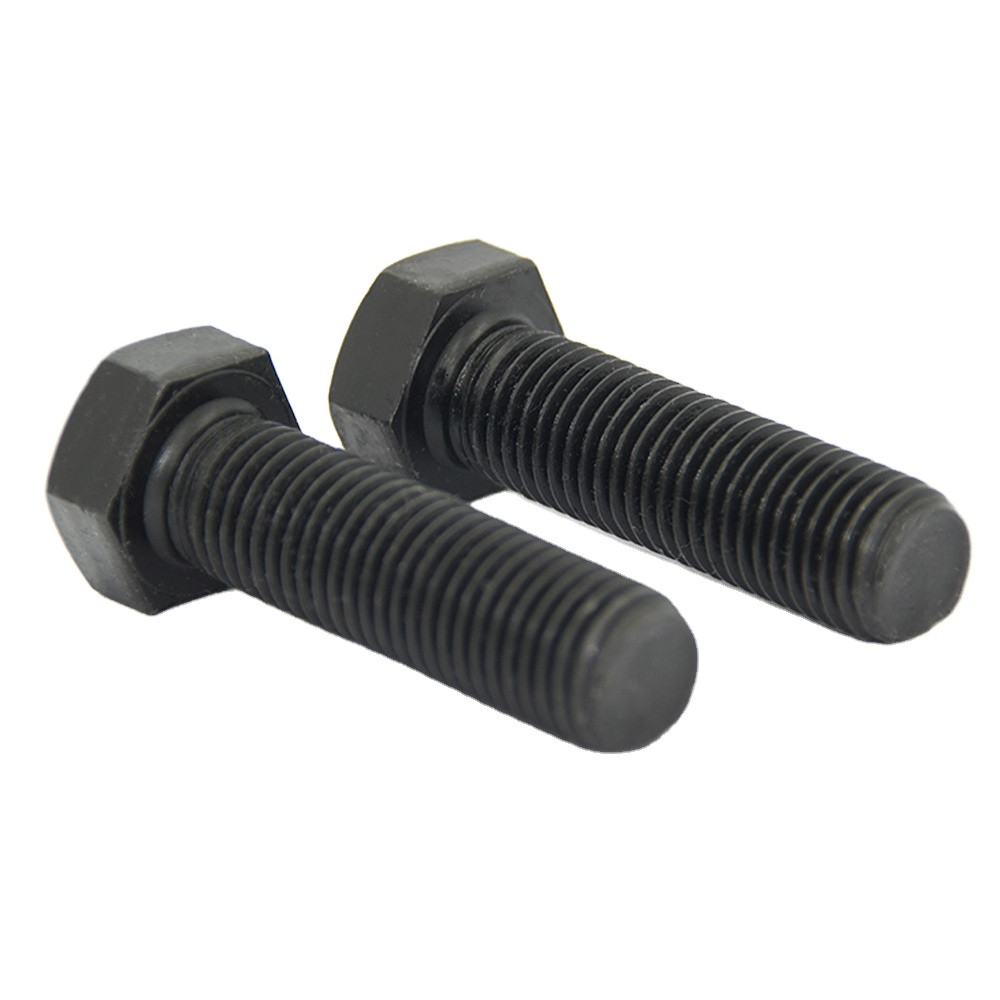Manufacturing Processes for Grade 8.8 Stud Bolt Production and Quality Control Techniques
Dec . 01, 2024 06:41 Back to list
Manufacturing Processes for Grade 8.8 Stud Bolt Production and Quality Control Techniques
Grade 8.8 Stud Bolts Understanding the Manufacturing Process and Applications
Stud bolts are crucial components used in various industrial applications, especially in the construction and engineering sectors. Among the several grades available, Grade 8.8 stud bolts are particularly noteworthy due to their high strength and durability. In this article, we will delve into the characteristics of Grade 8.8 stud bolts, the manufacturing process, their various applications, and the importance of quality standards in their production.
Characteristics of Grade 8.8 Stud Bolts
Grade 8.8 stud bolts are classified according to the ISO standard, which defines the properties of bolts used in construction. The 8.8 designation indicates the tensile strength and yield strength of the bolt. Specifically, Grade 8.8 bolts have a minimum tensile strength of 800 MPa (megapascals) and a yield strength of 640 MPa. This high strength makes them suitable for use in critical applications where safety and reliability are paramount.
In addition to their strength, Grade 8.8 studs are typically made from medium carbon steel, often alloyed with elements like manganese and silicon to enhance their mechanical properties. These bolts can be found in various coatings, such as zinc plating, which provides additional corrosion resistance, essential in outdoor and marine environments.
The Manufacturing Process
The production of Grade 8.8 stud bolts involves several key steps, ensuring that each bolt meets the required specifications and quality standards. The process typically begins with the selection of high-quality steel rods, which are then cut to the desired length for the bolts.
1. Heating and Forging The cut steel rods are heated in a furnace to high temperatures. This softening process allows the rods to be molded into the desired shape through forging. Forging enhances the material properties by refining the grain structure, resulting in improved toughness and strength.
grade8.8 stud bolt factories

2. Thread Rolling After forging, the bolts undergo a thread-rolling process. This method involves deforming the surface of the bolts to create threads without removing material. Thread rolling enhances the mechanical properties of the threads, making them stronger and more durable.
3. Heat Treatment The forged and threaded bolts are then subjected to heat treatment, which includes processes like quenching and tempering. Quenching involves rapidly cooling the bolts in a liquid medium (usually oil or water) to harden them. Tempering, on the other hand, is done by reheating the bolts to a specific temperature to improve ductility and reduce brittleness. This step is critical in ensuring that the bolts can withstand high loads without failing.
4. Surface Finishing The final step in the manufacturing process includes surface finishing treatments such as cleaning and coating. This not only gives the bolts a smooth finish but also protects them from environmental factors that could lead to corrosion. The most common coating includes zinc plating, but other options such as hot-dip galvanizing are also used, depending on the intended use.
Applications of Grade 8.8 Stud Bolts
Due to their robust mechanical properties, Grade 8.8 stud bolts find applications across various industries. They are commonly used in
- Construction In structural steel applications, Grade 8.8 bolts are vital for joining steel beams, columns, and other structural elements. - Marine Engineering Their corrosion-resistant properties make them suitable for shipbuilding and offshore structures. - Automotive Industry Many automotive applications, including securing engine components, rely on the strength of Grade 8.8 bolts. - Manufacturing Various machinery and equipment are assembled using these high-strength bolts, ensuring operational reliability.
Conclusion
Grade 8.8 stud bolts play a significant role in ensuring the stability and safety of various structures and applications. Their unique combination of strength, durability, and resistance to environmental factors makes them indispensable in many industries. Understanding the manufacturing process and the importance of quality standards is crucial for suppliers and manufacturers to deliver reliable components that meet the needs of their customers. Choosing the right grade of stud bolts, like Grade 8.8, can significantly affect the performance of the final product, making informed decision-making critical in engineering and construction projects.
Latest news
-
High-Quality Panel Stud Bolt Reliable Panel Stud Bolt Factory & Suppliers
NewsJul.08,2025
-
High-Precision Fine Thread Locknuts Manufacturer & Supplier Custom Solutions
NewsJul.08,2025
-
PH Imperial Stud Bolt – High Strength Fasteners from Leading Supplier & Factory
NewsJul.07,2025
-
High-Quality Allen Wrench Bolts Leading Factory, Company & Suppliers
NewsJul.07,2025
-
Wholesale Ball Stud Bolt - High Quality Supplier & Factory Price Reliable Wholesale Ball Stud Bolt Company
NewsJul.06,2025
-
High-Strength Alloy Bolts Manufacturer & Supplier Quality Alloy Fasteners Factory
NewsJul.06,2025
